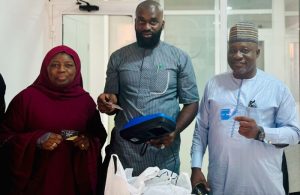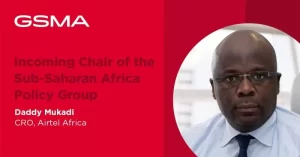Globally, one of the sectors disrupted by the effect of the ongoing pandemic is education. Specifically, students and teachers have been adversely impacted, especially since affected countries had to declare the closure of all academic institutions – a logical way to promote physical distancing. And Nigeria isn’t exempted from this reality.
While some owners of institutions, at various levels, able to afford it have come up with palliatives, such as online e-learning platforms, others can only look on and hope for the pandemic to abate. Apparently, this situation is more unfavourable for the latter group of people.
A parent, and one time school head, expresses worry about this. To him, individuals shouldn’t be left to handle such an issue of national concern. He suggests that a mainstream measure should have been in place to make sure the learning process wasn’t halted abruptly.
A bet on digital/online learning
Meanwhile, before the infection reached more than 170 countries, the World Bank had predicted a possible worst case scenario.
“…the impact on education is likely to be most devastating in countries with already low learning outcomes, high dropout rates, and low resilience to shocks,” the global body stated in a report.
This clearly seems like the description of a typical global south region.
In addition, the World Bank stated that “the outbreak of the virus and lockdowns at the national level could be used as the best test for the education technology interventions for distance learning. Unfortunately, few systems arrived at this point fully prepared.”
And this is sadly the truth.
While some privately-owned primary and secondary schools are making use of online tools – in the least, school websites and social media platforms – this doesn’t seem to be the case with government-owned institutions that have made similar efforts, albeit offline.
Suggested Read: What you should know about education technology (edtech) models in Nigeria
An adopted alternative turned out to be classroom broadcasts on public television and radio stations. While it was reported that Ogun state opted for this, there are claims that other states are holding classes at specific times via state-owned media (TV and radio) stations.
If the limiting effect of electricity is ignored, this arrangement could possibly have a greater reach than online-based solutions especially in remote areas with limited Internet access. However, these classes are mainly focused on students preparing for entrance examinations – school leaving certificate (Primary 6), Junior School Certificate (JSS3), and Senior School Certificate (SSS3) Examinations.
Asides that, the West African Examinations Council (WAEC) has a section of its website dedicated to tutorials for exam preparation purposes.
On a minor scale, some schools use online messaging platforms like Telegram for ease of learning. There is also a provision to access certain online learning platforms for free.
A federal unity school staff member explained to Techpoint that he is aware of a probable collaboration between online learning platform, Edmodo, and the school. This allows parents to log in for their wards to have preparatory lessons. This only began after the initial 2-week lockdown directive in three cities in the country.
Needless to say, these alternatives have presented their own challenges for teachers, students/pupils, and parents.
Suggested Read: By involving teachers, can edtech startups solve the learning problem in Nigeria?
Mrs. Titilayo (not real name), a teacher in a Lagos-based private school, explains how the school leadership ordered that classes should continue via an edtech digital app, immediately it became clear that schools would have to shut down.
What started as daily classes reduced to three classes a week due to Internet issues and parents being inconvenienced by their children using their devices so frequently. She, however, boasts that the transition was easy since the school has always been ICT compliant. Clearly, institutions that have never been ICT compliant are at a disadvantage at this time.
At the tertiary level, apart from those that have since adopted massive open online courses (MOOCs), it is not clear if many Nigerian higher institutions of learning have devised means to facilitate continuous learning for their students. This seems unlikely though, because most edtech solutions are focused on preliminary education and exam preparation.
Suggested Read: Beyond coding and generalised test preparation, what do Nigerian tertiary institutions gain from edtech solutions?
Perhaps, a partnership, similar to that which happened between Telkom Kenya and the University of Nairobi for the provision of customised Internet bundle for faculty members and over 40,000 population to support e-learning, would suffice.
As Nigerians clamour for downward reviews of data tariffs by telecoms operators, like in some African countries, now might be the right time, and education, a good reason, for them to respond.
Ultimately, the World Bank’s suggestion to use this crisis as an opportunity to introduce new learning modes that can reach everyone, prepare for emergencies, and make the system more resilient, should be taken seriously by educational administrators and policymakers.
Comments
Source of Article


